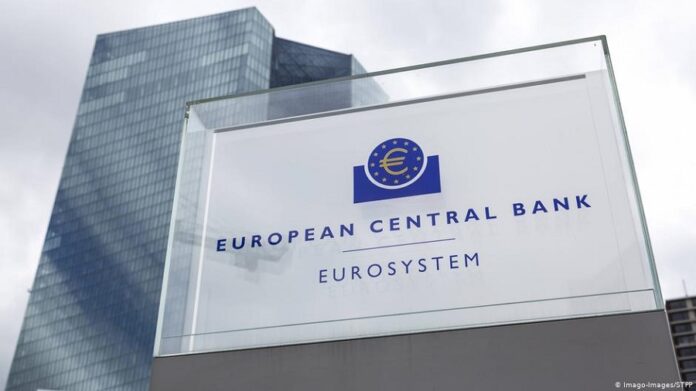The European Central Bank is set to raise interest rates to their highest level in over 20 years on Thursday, even though the eurozone has slipped into recession, according to Politico.
Analysts and investors bet that policymakers will deliver another 0.25 percentage point hike, taking the key deposit rate to 3.5 percent. The last time it was that high was in 2001.
With recent economic data suggesting that the ECB’s aggressive tightening is having its desired impact, the focus of President Christine Lagarde’s press conference will be on any indication of when rates may peak. Markets currently expect one more quarter-point hike in July.
Lagarde said earlier this month that the ECB is approaching its “cruising altitude,” and the global environment is also shifting, with the U.S. Federal Reserve widely expected to put its tightening cycle on hold on Wednesday.
However, even after the ECB’s unprecedented campaign — which raised interest rates from -0.5 percent in July to 3.25 percent in May — headline inflation continues to run at more than three times the central bank’s price stability target, far too high for the ECB to declare victory.
Board member Isabel Schnabel said last week that the bank’s own forecasts, which will be updated on Thursday, imply that inflation will have run above target for four whole years before returning below 2 percent.
The worst does, increasingly, appear to be over: headline inflation has come down faster than anticipated from a peak of 10.6 percent in October to 6.1 percent in May. Core inflation, which filters out volatile food and energy components and is seen as a more reliable guide of underlying inflation trends, started to ease in April, while consumer inflation expectations have come down significantly.
At the same time, the region’s economy is looking sickly. While the economy is set to eke out modest growth this quarter, official data technically put the eurozone economy in a recession over the winter, and weak data for manufacturing orders and bank lending data point to further pain ahead.
Usually, such weakness in the economy would be enough to keep prices in check. But record-low unemployment is keeping domestic demand high even without the economy growing, and growing distrust of old economic models adds to skepticism towards believing that the inflation monster has been slain.
“There is no clear evidence that underlying inflation has peaked,” Lagarde warned last week.
The latest wage dynamics will keep the ECB on high alert. Compensation per employee, historically the ECB’s favorite wage measure, rose 5.2 percent on the year in the first quarter. This should be “of serious concern to the ECB, as it is expected to pick up through the summer,” said Danske Bank economist Piet Haines Christiansen. Government energy subsidies, which have had the effect of supporting disposable income, also remain a concern for the bank.
Such concerns are likely to constrain Lagarde from giving any clear guidance as to when the ECB will likely stop hiking, forcing her instead to stress the central bank’s dependence on incoming economic data.
Any gaps in Lagarde’s communications may be filled by a potential change or lack thereof to the ECB’s new inflation forecasts for 2025.
Aside from interest rates, the ECB is also expected to confirm that it will end reinvestments from maturing bonds it bought under its old quantitative easing program, the so-called APP. However, it is expected to reaffirm that reinvestment of bonds bought under the Pandemic Emergency Purchase Program will continue as planned.


